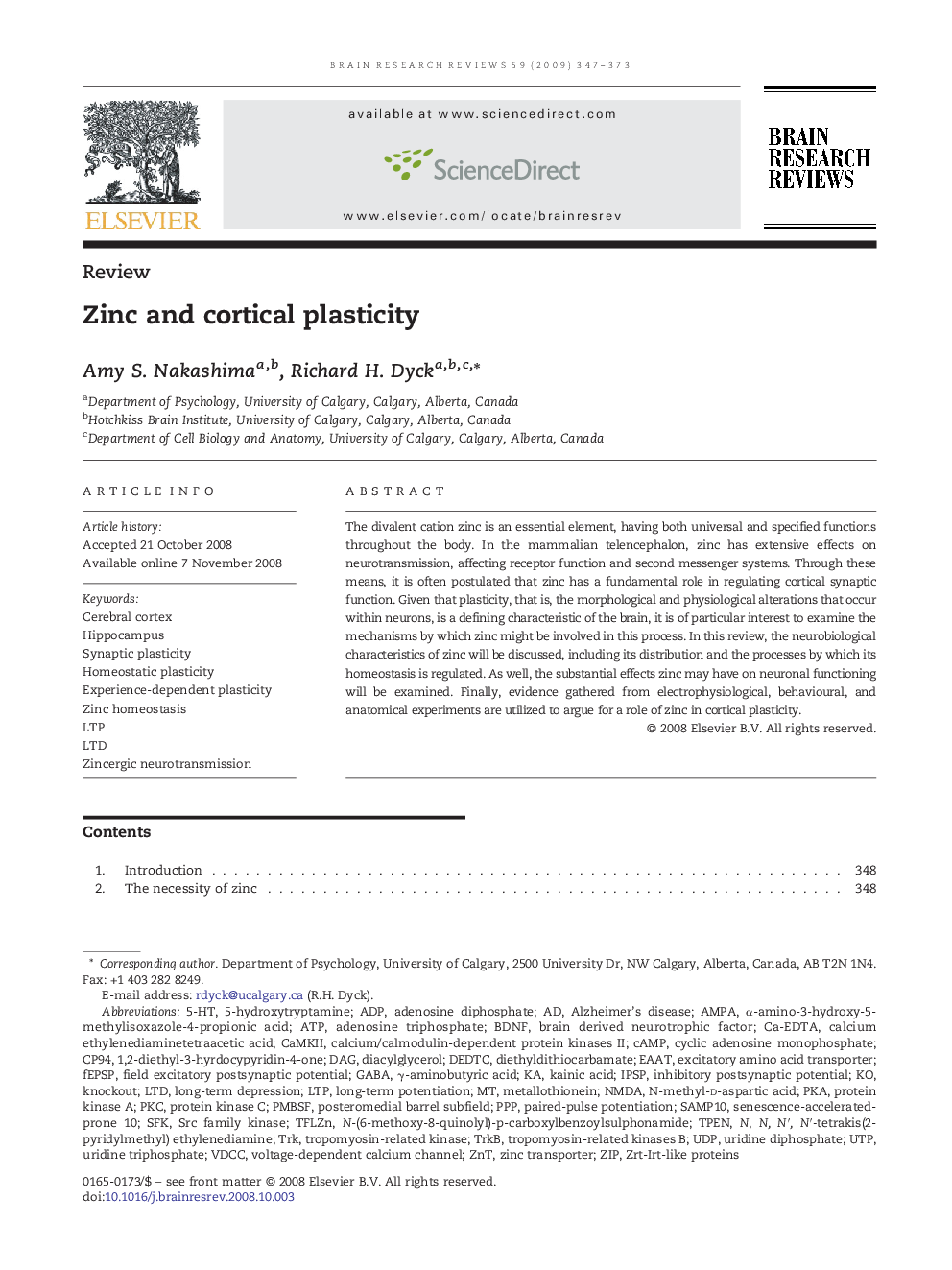| Article ID | Journal | Published Year | Pages | File Type |
|---|---|---|---|---|
| 4333774 | Brain Research Reviews | 2009 | 27 Pages |
Abstract
The divalent cation zinc is an essential element, having both universal and specified functions throughout the body. In the mammalian telencephalon, zinc has extensive effects on neurotransmission, affecting receptor function and second messenger systems. Through these means, it is often postulated that zinc has a fundamental role in regulating cortical synaptic function. Given that plasticity, that is, the morphological and physiological alterations that occur within neurons, is a defining characteristic of the brain, it is of particular interest to examine the mechanisms by which zinc might be involved in this process. In this review, the neurobiological characteristics of zinc will be discussed, including its distribution and the processes by which its homeostasis is regulated. As well, the substantial effects zinc may have on neuronal functioning will be examined. Finally, evidence gathered from electrophysiological, behavioural, and anatomical experiments are utilized to argue for a role of zinc in cortical plasticity.
Keywords
α-amino-3-hydroxy-5-methylisoxazole-4-propionic acidNMDATrkBPKCfEPSPADPEAATpKaCaMKIIAMPASFKIPSP5-hydroxytryptamineTPENN-methyl-d-aspartic acidPMBSFUTPZIPUDPPPPVDCCCP94ZnTDEDTCSAMP105-HTBDNFcAMPSrc family kinaseuridine diphosphateAdenosine TriphosphateATPadenosine diphosphateCyclic adenosine monophosphateγ-aminobutyric acidkainic acidlong-term depressionUridine triphosphateAlzheimer's diseaseTrktropomyosin-related kinaselong-term potentiationLTPexcitatory amino acid transporterZinc transporterdiethyldithiocarbamatediacylglycerolDAGbrain derived neurotrophic factorcerebral cortexMetallothioneinLTDknockoutZinc homeostasisHippocampusinhibitory postsynaptic potentialField excitatory postsynaptic potentialprotein kinase AProtein kinase CSynaptic plasticityhomeostatic plasticityExperience-dependent plasticityVoltage-dependent calcium channelGABA
Related Topics
Life Sciences
Neuroscience
Neuroscience (General)
Authors
Amy S. Nakashima, Richard H. Dyck,
